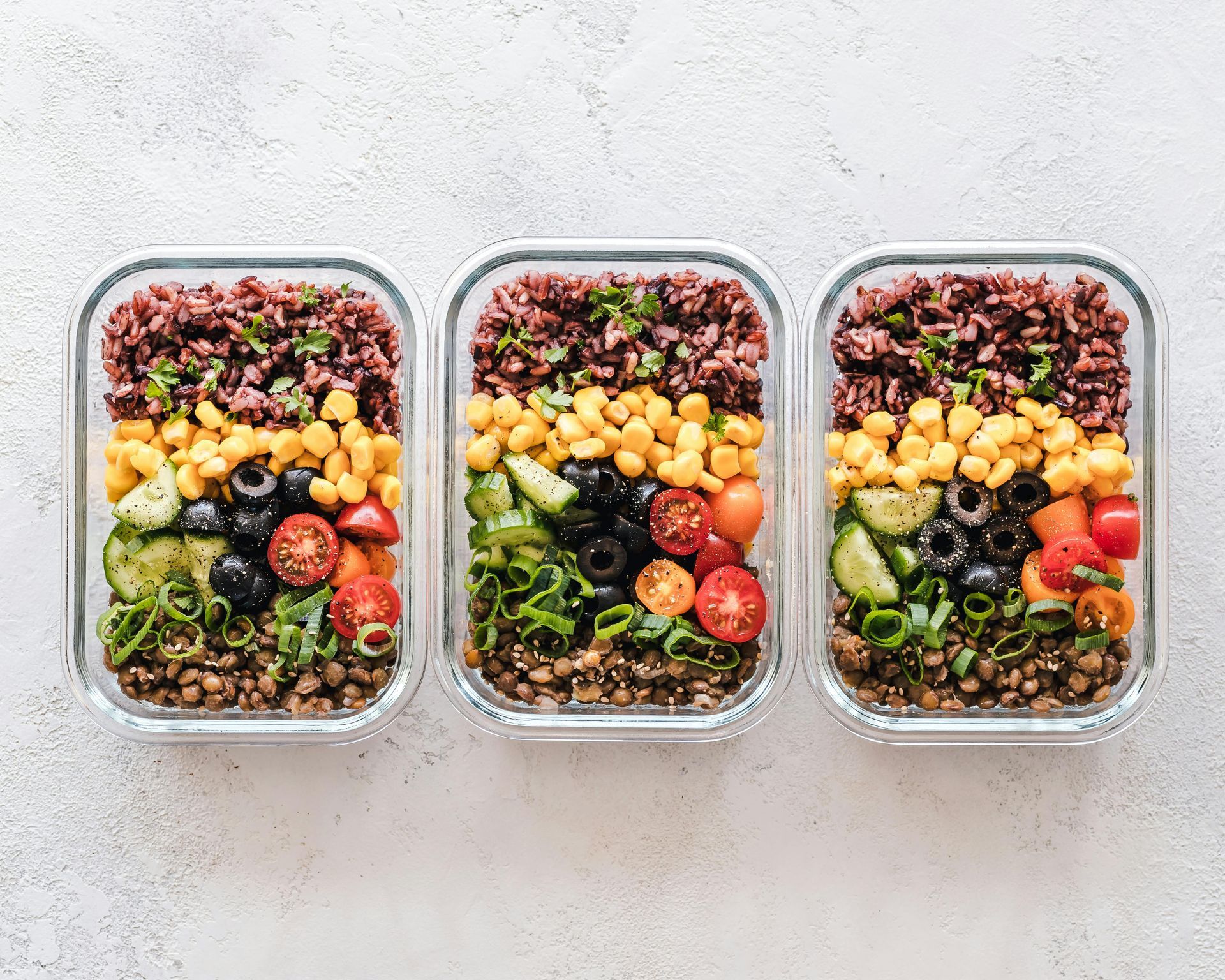By Alexis Jaramillo
•
October 30, 2025
Are you a woman between the age of 35-45? Suddenly you have brain fog, aches and pains, tired, just don't feel right in your body? It may be hormones. We have all heard the cliche signs of menopause : hot flashes, mood swings, weight gain... but there is so much more that we may experience. Perimenopause, that often-misunderstood transitional phase leading up to menopause, is characterized by significant and fluctuating hormone changes. These shifts, primarily in estrogen and progesterone, can make a woman's body feel totally different than what she's used to, profoundly impacting her physical and mental well-being, as well as her approach to fitness. It's important to remember that every woman experiences perimenopause differently, and we hope to shed some light on opportunities to identify what we can do to feel better. By understanding these physiological changes and adopting strategic lifestyle and exercise interventions, women can maintain optimal health and continue to thrive in their fitness pursuits, whether that's gym-based workouts, CrossFit, or strength training, during this critical life stage. .Cardiometabolic and Mental Health for Active Women in Perimenopause The hormonal fluctuations experienced during perimenopause have a direct and often significant impact on both cardiometabolic and mental health. Cardiometabolic Health: The decline in estrogen, a hormone typically protective of the cardiovascular system, can lead to several concerning changes. Women may experience an increase in "bad" cholesterol (LDL) and a decrease in "good" cholesterol (HDL). Blood vessels can become stiffer, contributing to an elevated risk of high blood pressure, and insulin sensitivity may decrease, raising the likelihood of developing type 2 diabetes. For active women deeply invested in strength training and fitness, recognizing these shifts is crucial for proactive health management. Mental Health: Estrogen plays a vital role in regulating brain chemicals that influence mood, motivation, and cognitive function. Consequently, fluctuating estrogen levels can manifest as mood swings, increased feelings of sadness or depression, heightened anxiety, irritability, and disruptions to sleep patterns. Progesterone, another key hormone, usually has calming effects; when its levels drop, anxiety and sleep disturbances can worsen. These mental health challenges can significantly impair gym performance, decrease motivation, and diminish overall quality of life.Hormonal Influences on Common Conditions in Perimenopausal Women Beyond their impact on the heart, metabolism, and mood, perimenopausal hormonal changes can contribute to a range of other common conditions: Joint Pain: Decreased estrogen can lead to reduced lubrication in the joints, increased inflammation, and accelerated cartilage degradation. This makes strength training even more vital for women during perimenopause, as it helps build and maintain muscle mass that supports and stabilizes joints. Frozen Shoulder: Hormonal shifts may interfere with collagen production, leading to stiffness and reduced range of motion in the shoulder joint. Migraines: The fluctuating levels of estrogen are a well-documented trigger for migraine headaches in susceptible individuals. Incontinence: Lower estrogen levels can weaken the tissues of the urethra and vagina, leading to issues with urinary incontinence. Increased Heart Disease Risk: The diminished cardioprotective effects of estrogen underscore the critical importance of incorporating both cardiovascular and strength training into a woman's health regimen during perimenopause. Altered Cholesterol Levels: The decline in estrogen is frequently associated with an unfavorable lipid profile, including elevated LDL and total cholesterol. Digestive Issues: Hormones exert influence over gut motility and the composition of the gut microbiome, which can lead to various digestive discomforts. Protein, Creatine, and Strength Training for Perimenopausal Women To effectively counteract the systemic effects of hormonal shifts, particularly on muscle and bone health, active perimenopausal women—whether engaging in gym workouts or CrossFit—must prioritize specific nutritional and exercise strategies. Increased Protein Needs for Active Women: During perimenopause, women often experience "anabolic resistance," meaning their bodies become less efficient at utilizing dietary protein for muscle repair and growth. Dr. Stacy Sims, a leading expert in women's physiology, recommends a daily protein intake of 1.6-2.2 grams per kilogram of body weight. This should be strategically distributed throughout the day, aiming for 25-40 grams of high-quality protein per meal or snack, with particular emphasis on post-workout consumption. This increased protein intake is paramount for optimizing muscle protein synthesis, facilitating muscle gain, and enhancing recovery for women. Creatine Supplementation for Women's Fitness: Creatine, a supplement often associated with male athletes, is frequently overlooked by women. However, Dr. Sims advocates for 5 grams of creatine monohydrate daily for perimenopausal women. Creatine can significantly enhance muscle strength and power output, support cognitive function, and indirectly contribute to bone health by enabling more intense and effective resistance training sessions. Strength Training is Key for Perimenopause: Marie Claire Haver and Stacy Sims emphatically stress that consistent, progressive strength training is far more critical than excessive cardio for perimenopausal women. Strength training directly addresses sarcopenia (age-related muscle loss) and osteoporosis (bone density decline) by stimulating muscle hypertrophy and promoting bone adaptation. The recommendation is to aim for 2-4 progressive strength training workouts per week, focusing on heavy lifting (80-85% of your one-rep max) for 3-5 sets of 3-8 repetitions. Exploring a women's gym or a CrossFit for women program can provide a supportive and motivating environment. CrossFit, with its varied, high-intensity functional movements, is particularly effective at building comprehensive strength, improving cardiovascular health, and fostering a strong sense of community—all of which are invaluable for navigating the challenges of perimenopause. Lifestyle Adjustments for Women's Hormonal Health In addition to targeted nutrition and strength training, several lifestyle modifications can significantly support hormonal balance and overall well-being during perimenopause: Exercise Regularly: Complement strength training with low-impact activities like swimming, cycling, or yoga to promote flexibility, reduce stress, and improve cardiovascular health without excessive joint impact. Manage Weight: Maintaining a healthy weight is crucial, as excess body fat can exacerbate joint pain and put additional strain on the musculoskeletal system, potentially hindering gym routines and overall mobility. Reduce Stress: Chronic stress can disrupt hormonal balance. Incorporating stress-reduction techniques such as mindfulness meditation, deep breathing exercises, spending time in nature, or engaging in hobbies can help mitigate these effects. Dietary Changes: Prioritize an anti-inflammatory diet rich in omega-3 fatty acids (found in fatty fish, flaxseeds), abundant fruits and vegetables, and consider incorporating phytoestrogen-rich foods like soy. Ensure adequate hydration throughout the day and limit the consumption of processed foods, refined sugars, and excessive inflammatory foods. Supplements: Certain supplements may offer additional support, including omega-3s for inflammation, turmeric for its anti-inflammatory properties, collagen for joint and skin health, glucosamine and chondroitin for joint support, and magnesium, calcium, and Vitamin D for bone health and other vital functions. However, it is imperative to consult with a healthcare professional before starting any new supplements to ensure they are appropriate for your individual needs and do not interact with existing medications. By adopting these comprehensive, multi-faceted strategies, women can proactively address the physiological and psychological challenges of perimenopause, effectively supporting their muscle mass, bone density, and overall well-being. Always engage in open dialogue with healthcare professionals for personalized advice tailored to your unique fitness goals and hormonal health journey. Hormone Replacement Therapy (HRT) can be an additional resource to consider during perimenopause, alongside lifestyle interventions. HRT involves the use of hormones to manage perimenopausal symptoms and can support bone density and muscle maintenance. It is crucial to discuss HRT with a healthcare provider to determine if it's appropriate for your individual needs. For further information and resources, you can explore the work of: Dr. Andrew Huberman: The Huberman Lab podcast has featured episodes discussing female hormone health, including a detailed episode with Dr. Mary Claire Haver on navigating menopause and perimenopause. Dr. Stacy Sims: An exercise physiologist and nutrition scientist, Dr. Sims is a leading expert on women's health and performance during hormonal changes. Her recommendations often include tailored nutritional and training strategies for perimenopausal women. You can find her books, Roar and Next Level, and her guest appearances on podcasts like The Ready State and Mel Robbins. Dr. Mary Claire Haver: A board-certified OB/GYN and certified menopause practitioner, Dr. Haver is known for her expertise in navigating menopause and perimenopause. She has discussed HRT, lifestyle changes, and nutritional strategies for women's health during these transitions. Her book is titled The New Menopause, and she hosts the podcast Paused.







